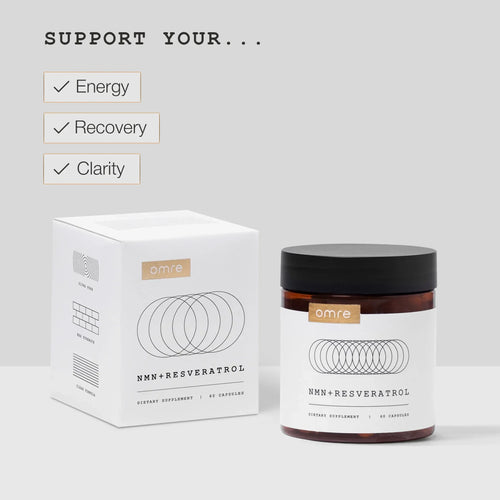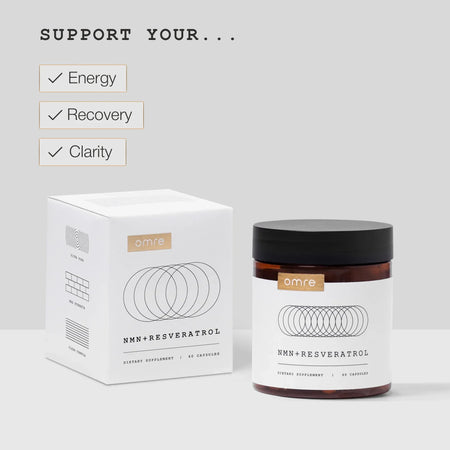Table of Contents
Aging is a natural part of life, but wouldn’t it be great to slow it down—or even reverse aging to feel younger and more vibrant?
While we can't completely stop the clock, science-backed strategies and smart lifestyle choices can help you reclaim energy, improve health, and maintain a youthful glow.
Keep reading for practical tips to reverse aging naturally and enjoy a longer, healthier life.
NMN + RESVERATROL
Cellular NAD+ booster with ultra‑pure NMN and Resveratrol, at research‑backed doses.*
Understanding Aging
Aging is like a ticking clock for your body—each moment brings changes at a cellular level. But why do some people seem to age slower than others? To get the full picture, let’s break down the mechanics of aging.
What Causes Aging?
Aging occurs when our bodies experience wear and tear over time, leading to gradual declines in cellular function. Here’s what contributes to it:
Cellular Damage: Accumulation of oxidative stress and free radicals.
DNA Breakdown: Telomeres, the protective caps on our DNA, shorten with each cell division.
Decreased Repair Mechanisms: The body's ability to repair itself diminishes with age.
Chronic Inflammation: Long-term inflammation speeds up aging at the cellular level.
Biological vs. Chronological Age
Your chronological age is just a number—the years you’ve been alive. Biological age, on the other hand, reflects how well your body is functioning.
Two people may be 50 years old, but one might have the cellular health of a 40-year-old, while the other’s body behaves like it's 60.
The good news? Biological age can be influenced by lifestyle choices like diet, exercise, and stress management.
So, while we can’t change the calendar, we can improve how our bodies perform with each passing year.
Can Aging Be Reversed?
While aging itself can’t be fully reversed, certain practices can slow it down, protect against premature signs, and improve your biological age. Techniques like reprogramming cells, protecting skin, and adopting healthier habits are key.
Aging may be inevitable, but it doesn’t have to define how you live. Recent research reveals that it’s possible to slow aging through innovative techniques like T-cell reprogramming and lifestyle changes. These approaches not only improve how you feel but also reduce the effects of age-related conditions.
For example, protecting your skin from sun damage, quitting smoking, and maintaining a balanced diet can prevent premature aging.
Similarly, exercise and dietary tweaks have been shown to enhance biological age by optimizing cellular health.
Here are some actionable steps to support healthy aging:
- Slow Down Aging: Incorporate T-cell rejuvenation strategies and exercise regularly.
- Protect Against Premature Aging: Use sunscreen, eat antioxidant-rich foods, and stop smoking.
- Minimize Aging Effects: Focus on anti-inflammatory diets, consider targeted supplements, and adopt healthy habits.
- Improve Biological Age: Build a routine with strength training, proper sleep, and stress management.
15 Ways to Reverse Aging and Restore Youth Naturally
Reversing aging might sound far-fetched, but small, intentional changes can make a big difference in how you feel and look over time. From improving sleep to eating smarter, these strategies may help you slow down the clock and keep your body and mind in great shape.
1. Quit Smoking and Limit Alcohol Consumption
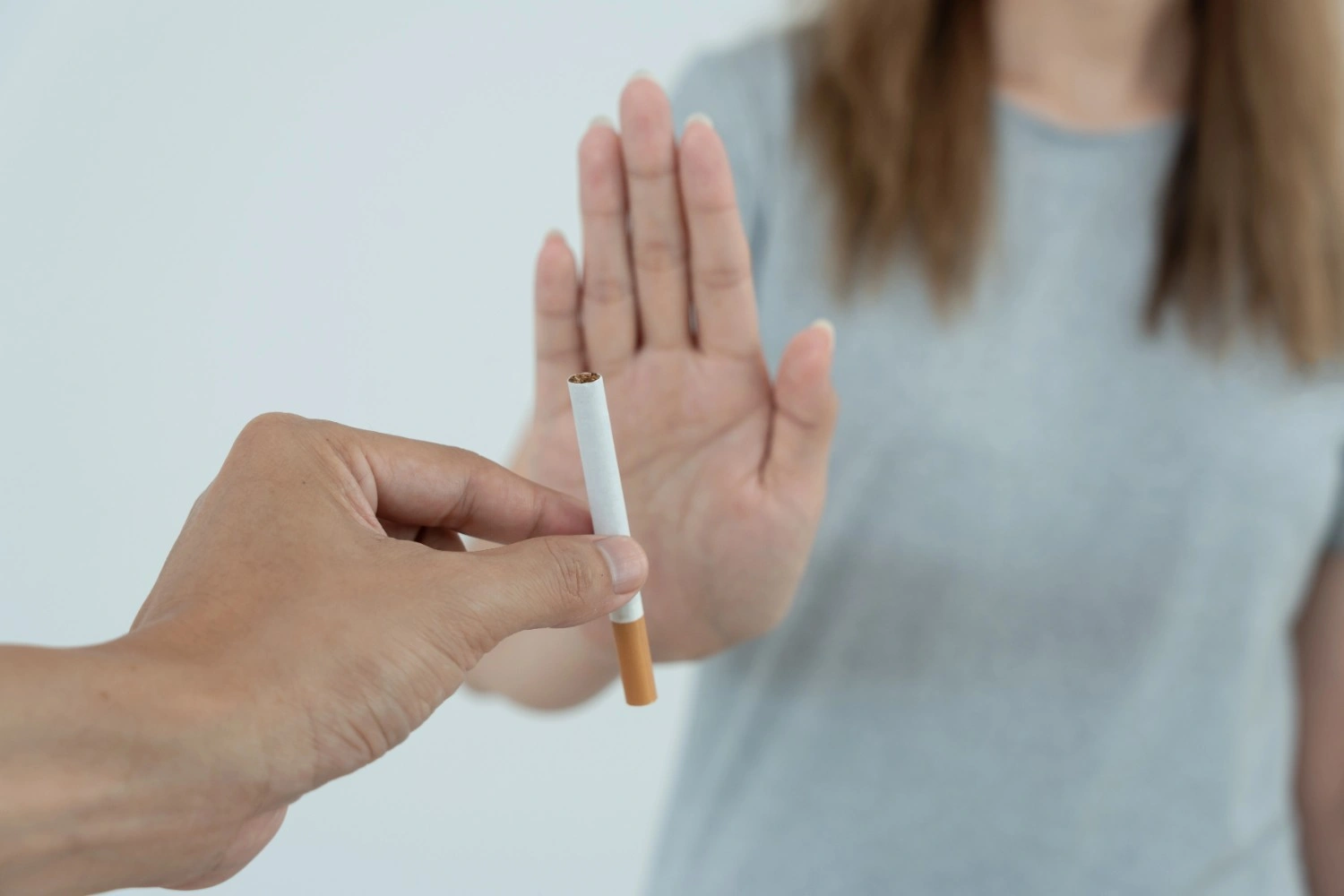 Smoking and heavy drinking can take a toll on your body, speeding up the aging process. They may cause skin damage, weaken your immune system, and increase inflammation—factors often linked to premature aging.
Smoking and heavy drinking can take a toll on your body, speeding up the aging process. They may cause skin damage, weaken your immune system, and increase inflammation—factors often linked to premature aging.
Quitting smoking could improve your circulation, lung health, and even skin texture. Cutting back on alcohol may also reduce inflammation and protect your liver, which plays a key role in detoxifying your body.
Some studies suggest that moderate alcohol intake, especially red wine, might provide antioxidants, but moderation is key (1).
If you’re looking to reverse aging, focusing on healthier habits instead of these damaging ones might make a noticeable difference.
2. Get Quality Sleep
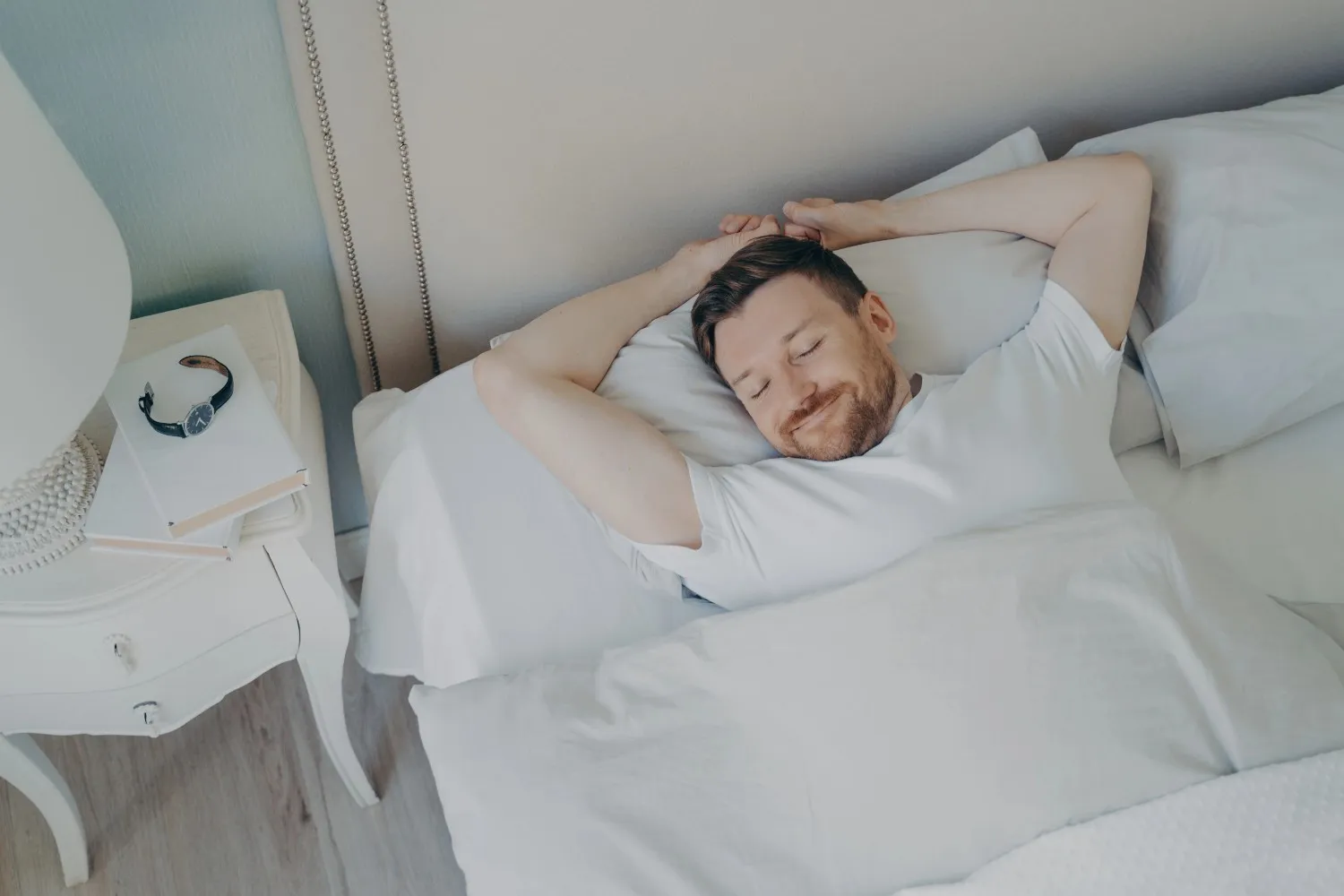
Sleep does more than just rest your body—it’s when your cells repair and regenerate. Poor sleep habits may accelerate aging by increasing stress hormones and inflammation in the body.
Research suggests that people who consistently get 7–9 hours of sleep each night might have healthier brain function, stronger immune systems, and even slower cellular aging (2).
Sleep deprivation, on the other hand, has been linked to higher risks of heart disease and memory problems.
Creating a calming bedtime routine and limiting screen time before bed might help you fall asleep faster and wake up feeling refreshed. Prioritizing good sleep could be one of the simplest ways to help reverse aging naturally.
3. Reduce Stress and Practice Mindfulness
 Chronic stress doesn’t just weigh on your mind—it might also speed up aging. Stress hormones, like cortisol, can trigger inflammation, impact digestion, and even interfere with sleep, all of which may contribute to premature aging.
Chronic stress doesn’t just weigh on your mind—it might also speed up aging. Stress hormones, like cortisol, can trigger inflammation, impact digestion, and even interfere with sleep, all of which may contribute to premature aging.
Mindfulness practices like meditation, yoga, and deep breathing might help lower stress levels and improve mental clarity. Studies show these activities may also support heart health and reduce inflammation (3).
Even something as simple as taking a short walk outside or journaling can provide a mental reset. Managing stress isn’t just about feeling better—it may also help keep your body and mind younger for longer.
4. Stay Physically Active
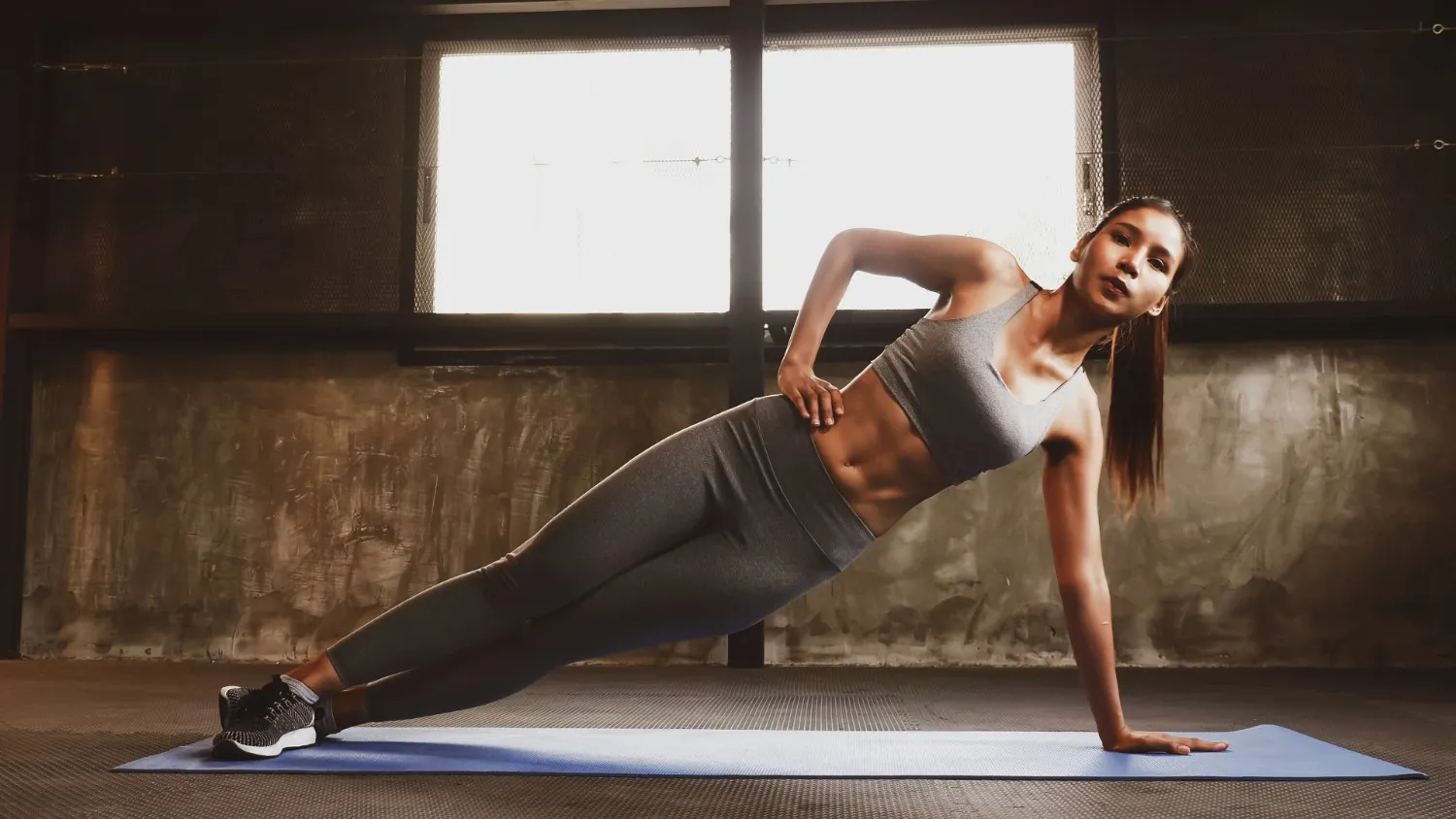 Exercise isn’t just good for your muscles—it might also help slow down signs of aging at the cellular level. Physical activity may improve circulation, increase energy, and stimulate the production of mitochondria, the powerhouses of your cells.
Exercise isn’t just good for your muscles—it might also help slow down signs of aging at the cellular level. Physical activity may improve circulation, increase energy, and stimulate the production of mitochondria, the powerhouses of your cells.
Strength training can help maintain muscle mass, which naturally declines with age, while aerobic exercises might keep your heart and lungs in better shape.
High-intensity interval training (HIIT) has been linked to cellular regeneration, and lower-impact activities like yoga may improve flexibility and balance (4).
Even light activity, like walking or gardening, can make a difference. The goal is to move regularly, no matter what form of exercise you enjoy most.
5. Maintain Social Connections

Staying socially connected might be just as important as eating well or exercising when it comes to reversing aging. Some studies suggest that strong relationships can reduce stress, lower inflammation, and even improve mental health (5).
Engaging with friends, family, or community groups may also provide emotional support, which could lower your risk of depression and anxiety. Even small interactions—like chatting with a neighbor or joining a class—can help you feel more connected.
Whether it’s a weekly phone call or regular meetups, nurturing relationships might help you stay younger, both physically and mentally.
6. Eat More Omega-3 Fatty Acids
-v1736189666479.webp) Omega-3 fatty acids, found in foods like salmon, walnuts, and chia seeds, may help reduce inflammation and protect against age-related decline. These healthy fats are known to support heart health, brain function, and even skin elasticity.
Omega-3 fatty acids, found in foods like salmon, walnuts, and chia seeds, may help reduce inflammation and protect against age-related decline. These healthy fats are known to support heart health, brain function, and even skin elasticity.
Some research suggests that diets rich in omega-3s might be linked to slower telomere shortening, a marker of cellular aging (6). They may also improve joint health and reduce stiffness, keeping you more mobile as you age.
Adding fatty fish or plant-based sources of omega-3s to your diet a few times a week could give your body the tools it needs to stay healthier for longer.
7. Adopt a Mediterranean Diet
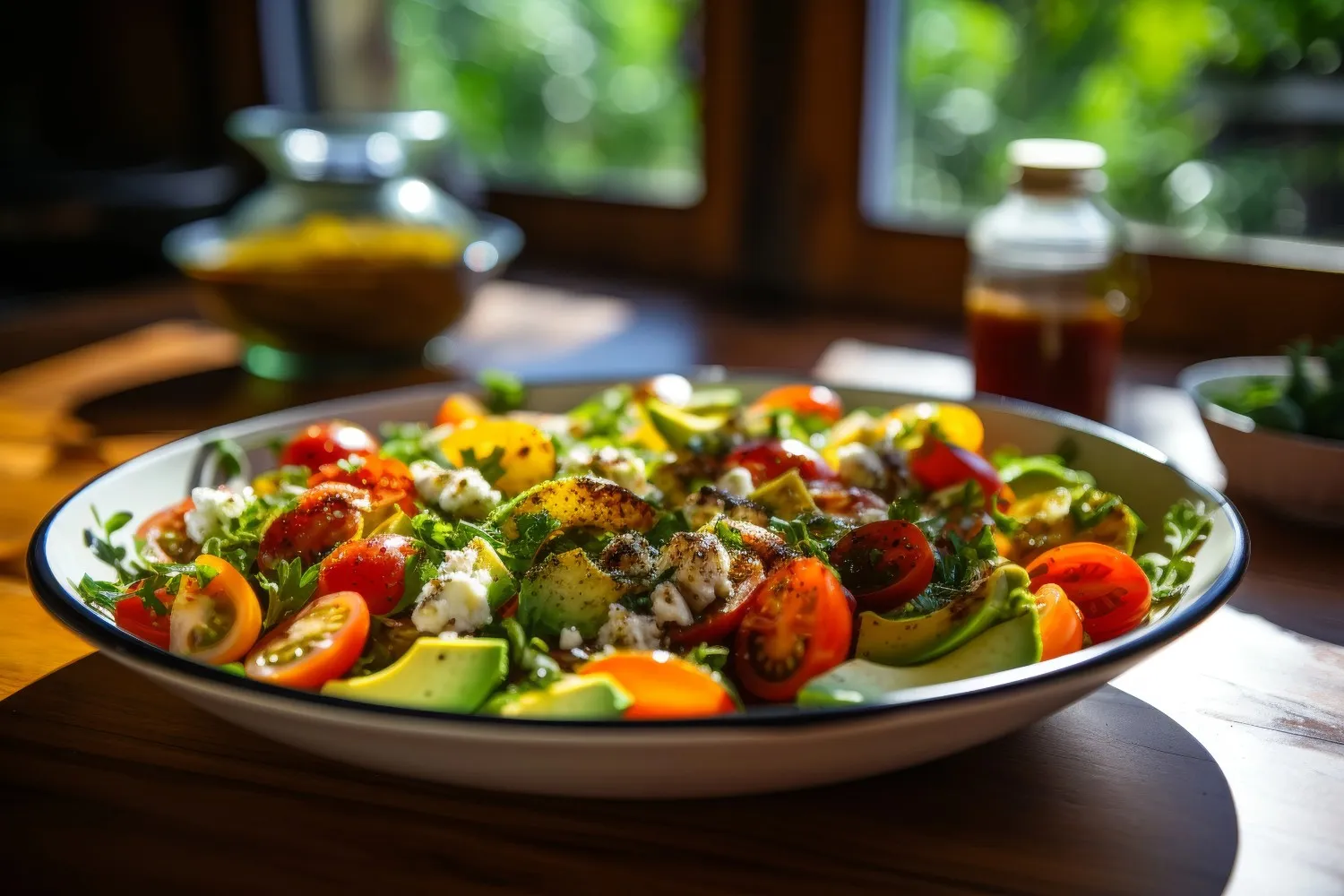 The Mediterranean diet is widely regarded as one of the healthiest eating patterns, and it might also help slow down aging.
The Mediterranean diet is widely regarded as one of the healthiest eating patterns, and it might also help slow down aging.
Packed with fruits, vegetables, whole grains, olive oil, and lean proteins, it focuses on nutrient-dense foods that may reduce inflammation and improve heart health.
Some studies suggest that following this diet could support brain function and reduce the risk of chronic diseases (7). The antioxidants and healthy fats in the Mediterranean diet may also protect cells from oxidative stress, a key factor in aging.
You don’t have to overhaul your diet overnight. Small changes, like swapping butter for olive oil or adding more vegetables to your meals, might be an easy way to get started.
8. Load Up on Antioxidants-v1736190968522.webp)
-v1736190968522.webp)
Antioxidants act like shields against damage caused by free radicals—unstable molecules that can accelerate aging. Foods rich in vitamins C and E, like berries, spinach, and nuts, may help protect your cells and keep your skin looking younger.
Some studies indicate that diets high in antioxidants might be linked to lower risks of age-related conditions, including memory loss and heart problems (8). They may also promote better skin health by reducing wrinkles and dryness.
Eating a variety of colorful fruits and vegetables each day is a simple way to get more antioxidants into your diet. Think of it as feeding your cells the nutrients they need to stay strong and healthy.
9. Hydrate for Youthful Skin and Cells
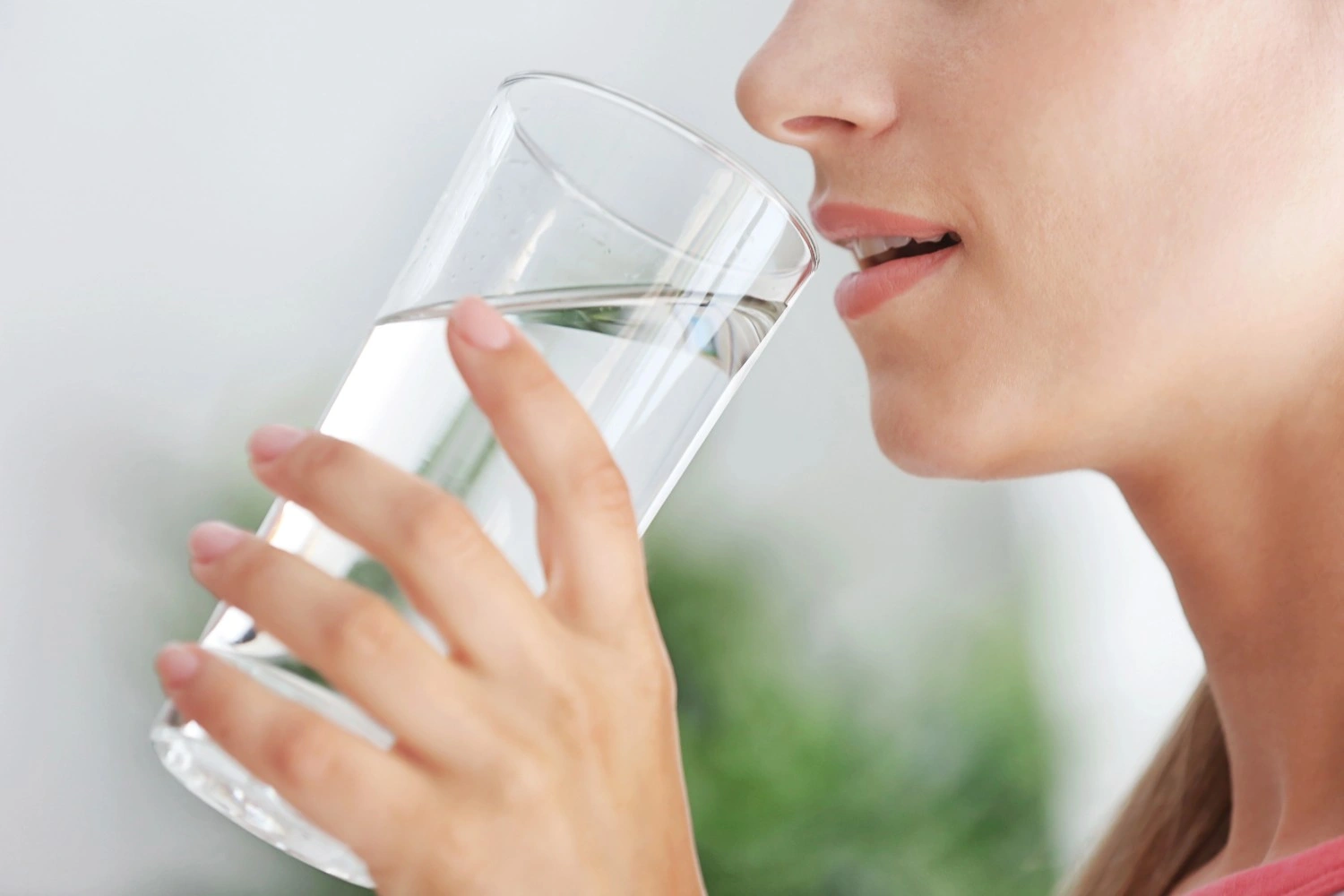 Staying hydrated is one of the simplest ways to support your body’s natural repair processes. Water helps flush out toxins, supports cell function, and keeps your skin looking plump and smooth. Dehydration, on the other hand, may lead to dull skin, fine lines, and fatigue.
Staying hydrated is one of the simplest ways to support your body’s natural repair processes. Water helps flush out toxins, supports cell function, and keeps your skin looking plump and smooth. Dehydration, on the other hand, may lead to dull skin, fine lines, and fatigue.
Some studies suggest that drinking enough water can improve skin elasticity and texture, potentially reducing the visible signs of aging (9). Adding water-rich foods like cucumbers and watermelon to your diet can also help keep hydration levels up.
Carrying a reusable water bottle or setting reminders to drink throughout the day might make it easier to stay consistent and give your body the hydration it needs.
10. Try Calorie Restriction or Intermittent Fasting
 Eating less might actually help you live longer. Research suggests that calorie restriction could slow biological aging by reducing oxidative stress and improving cellular repair. It may also support weight management and metabolic health (10).
Eating less might actually help you live longer. Research suggests that calorie restriction could slow biological aging by reducing oxidative stress and improving cellular repair. It may also support weight management and metabolic health (10).
Intermittent fasting, where you limit eating to specific windows of time, may offer similar benefits. Some studies indicate that fasting can promote autophagy—a process where cells clear out damaged components, making way for healthier ones.
If you’re thinking about trying fasting, start with a simple 12-hour eating window and gradually adjust based on what feels right for your body.
11. Optimize Hormonal Health
-v1736190848957.webp)
Hormones play a big role in how we age. As we get older, levels of hormones like estrogen, testosterone, and growth hormone tend to decline, which might lead to muscle loss, fatigue, and slower metabolism.
Natural approaches like strength training, proper sleep, and stress management can help balance hormones. Certain nutrients, such as zinc, magnesium, and omega-3s, may also support hormonal health.
While hormone replacement therapy might be an option for some, it’s important to consult with a healthcare provider before making any decisions. The right balance can help you feel more energized and resilient.
12. Explore Biological Age Testing
Knowing your biological age may give you a clearer picture of how well your body is aging compared to your actual years. These tests typically analyze biomarkers like DNA methylation patterns, telomere length, and inflammatory markers.
Some studies suggest that biological age testing can help identify early signs of aging, allowing you to make adjustments to improve health outcomes (11).
For example, tests like DunedinPACE measure the pace of aging based on epigenetic changes.
If you’re curious about your biological age, testing might help you track your progress as you adopt healthier habits.
NMN + RESVERATROL
Cellular NAD+ booster with ultra‑pure NMN and Resveratrol, at research‑backed doses.*
13. Focus on Gut Health
 Your gut does more than digest food—it plays a key role in immunity and inflammation, both of which affect aging. Research shows that maintaining a healthy gut microbiome may reduce inflammation and support better metabolic function (12).
Your gut does more than digest food—it plays a key role in immunity and inflammation, both of which affect aging. Research shows that maintaining a healthy gut microbiome may reduce inflammation and support better metabolic function (12).
Foods rich in probiotics, like yogurt and sauerkraut, and prebiotics, such as garlic and onions, may help nourish beneficial gut bacteria. Adding fiber-rich fruits and vegetables to your meals can also promote gut health.
Taking care of your gut might not only improve digestion but also support overall longevity.
14. Stay Mentally Sharp
 Keeping your brain active might help slow cognitive decline. Learning new skills, reading, or playing puzzles and games may strengthen neural connections and keep your mind engaged.
Keeping your brain active might help slow cognitive decline. Learning new skills, reading, or playing puzzles and games may strengthen neural connections and keep your mind engaged.
Some studies suggest that activities like learning a new language or playing a musical instrument can promote brain plasticity, potentially reducing the risk of memory loss and dementia (13).
Taking time to challenge your brain each day could be a fun and rewarding way to stay sharp as you age.
15. Add Superfoods and Supplements
Certain superfoods and supplements may help reverse some signs of aging by supporting cellular repair and protecting DNA. Antioxidant-rich foods like blueberries, spinach, and nuts might reduce oxidative stress, while supplements can target specific aging pathways.
CoQ10 is often recommended for energy production, NMN helps increase NAD+ levels, and Resveratrol may activate longevity-related enzymes. Spermidine has been studied for its role in promoting autophagy (14).
Adding these to your routine, whether through diet or supplements, could give your body an extra edge in maintaining health and vitality.
For those looking for targeted support, Omre’s NMN + Resveratrol supplement offers a research-backed formula to promote cellular energy and NAD+ production. 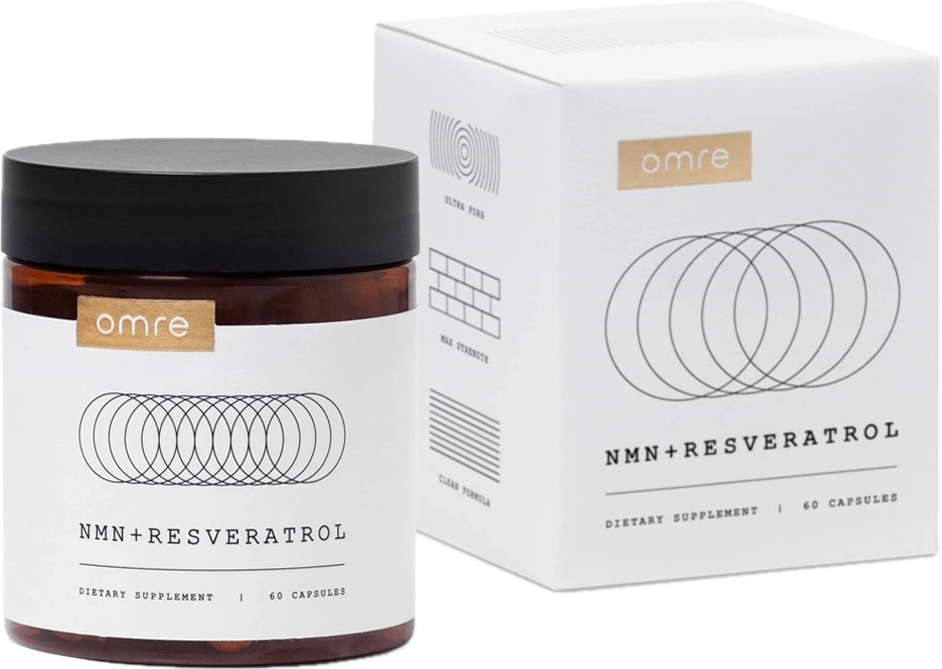 NMN serves as a direct precursor to NAD+, while Resveratrol activates sirtuins, enzymes associated with cellular repair. With 99% pure ingredients and impactful doses, it’s designed to help you stay energized and resilient.
NMN serves as a direct precursor to NAD+, while Resveratrol activates sirtuins, enzymes associated with cellular repair. With 99% pure ingredients and impactful doses, it’s designed to help you stay energized and resilient.
Omre combines NMN and Resveratrol with BioPerine®, which improves absorption, making it a smart choice for those serious about anti-aging. Its high purity and clean formula stand out from cheaper alternatives.
Conclusion
Aging is natural, but how we age depends on the choices we make.
From improving sleep and reducing stress to eating nutrient-rich foods and trying supplements like NMN and Resveratrol, these steps may help you slow aging and feel more youthful.
Small changes can make a big difference in how your body and mind handle the years ahead.
Ready to give your cells the support they need?
Check availability for Omre NMN + Resveratrol and take the first step toward healthier aging today.




